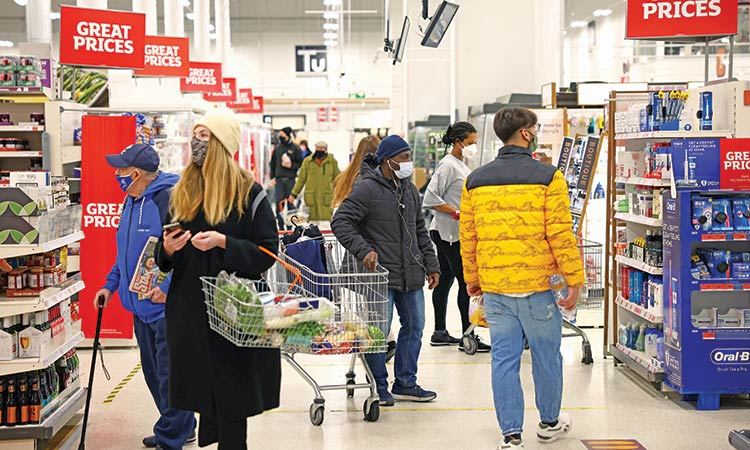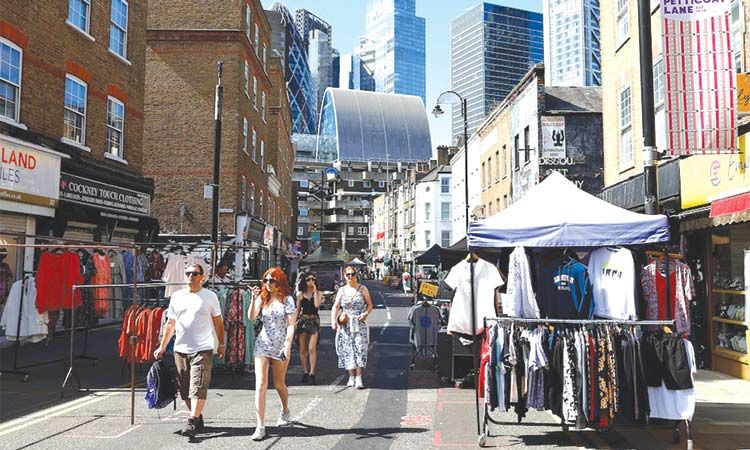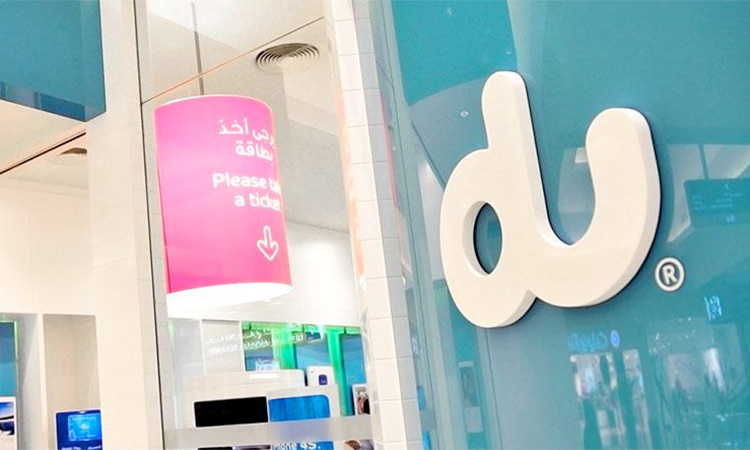UK retail sales up, suggesting recession will be short-lived

Photo used for illustrative purpose.
Economists polled by Reuters had forecast that sales volumes would increase by a median 1.5% on a monthly basis.
January’s jump - the biggest since April 2021 - followed December’s 3.3% fall, the most severe since January 2021.
“Overall, today’s release was stronger than expected and suggests the drag from higher interest rates on consumer spending is fading fast and points to the economy soon moving out of recession,” Joe Maher, an economist with Capital Economics said.
Data published on Thursday showed Britain’s economy slipped into a recession in the second half of 2023 but it is expected to grow moderately this year as inflation cools, wages rise and interest rates are forecast to fall.
“After a very weak December, retail sales rebounded in January with the largest monthly rise since April 2021,” Heather Bovill, deputy director for surveys and economic indicators at the Office for National Statistics (ONS), said.
“This means that overall sales have now recovered to pre-December levels, although if we look at the broader picture, they are still below where they were pre-pandemic.” Sterling edged up against the dollar and euro after the data was published.
Compared with a year ago, sales volumes were 0.7% higher.
The ONS said food store sales rose by 3.4% in January after December 3.1% fall.
Clothes sales dropped 1.4% on the month, the only sub-category to fall in January, the ONS said.
Excluding petrol, overall sales volumes were up 3.2% in January from December.
The pound briefly flickered higher on Friday after data showed UK retail sales grew at their fastest pace in nearly three years in January, beating expectations, but did little to shift expectations around Bank of England (BoE) monetary policy.
Retail sales rose at a monthly rate of 3.4% in January, according to the Office for National Statistics, compared with forecasts for an increase of 1.5% in a Reuters poll. The rise was the biggest since April 2021. Sterling was last flat on the day at $1.259, having traded around $1.25815 prior to the numbers. Against the euro, the pound was also unchanged on the day at 85.46 pence.
For the week so far, the pound is on track to log its first weekly decline against the euro in two months, with a 0.1% dip, while against the dollar, it is set for a 0.2% decline.
The BoE is intent on bringing down inflation, which at 4%, is double its current target.
A number of metrics of UK activity have shown growth is holding up, even if the economy slipped into recession in the second half of last year.
Analysts at ING said on Friday it was unlikely that the BoE would shift its focus to something other than inflation and wage growth, in particular.
“It does not seem likely that the BoE will turn significantly more hawkish only on the basis of softer growth and without having reassurances on the inflation side first,” strategist Francesco Pesole said.
“The pound seems to mirror this narrative, declining only modestly after GDP numbers yesterday and gaining a little bit this morning,” he said, adding that a rebound in the value of the euro against sterling was on the cards given the divergence in expectations for interest rates between Britain and the eurozone.
Futures markets shows traders believe the BoE will rank among the most aggressive among major central banks in resisting rate cuts.
Around three quarter-point rate cuts are priced in for this year, compared with nearly four cuts from the Federal Reserve and almost five from the European Central Bank.
This has given the pound an edge against other currencies, making it the least-weakest performer against the dollar so far this year, with a decline of just 1%, compared with a drop of 6.5% in the yen, the worst performer.
Separately, British bank NatWest confirmed Paul Thwaite as its permanent chief executive on Friday and reported forecast-beating profit for 2023, as it gears up for a crunch sale of state-owned stock in the company after a scandal-hit year.
The taxpayer-backed lender reported pre-tax profit of 6.2 billion pounds ($7.81 billion) for the 12-month period, up 20% on 5.1 billion pounds the prior year and ahead of a 5.95 billion pounds average of analyst forecasts compiled by the bank.
NatWest also announced a final dividend of 11.5 pence per share and a share buyback of 300 million pounds.







